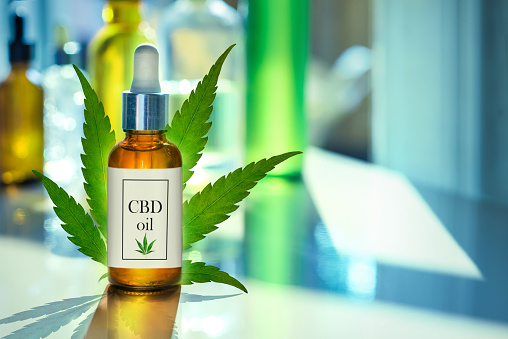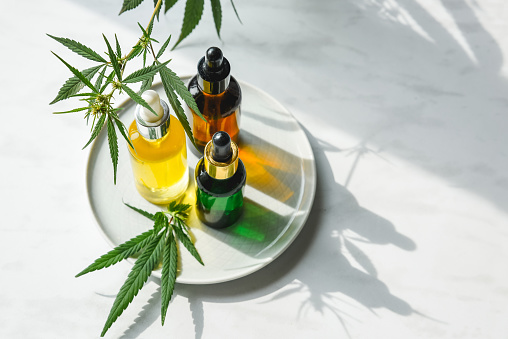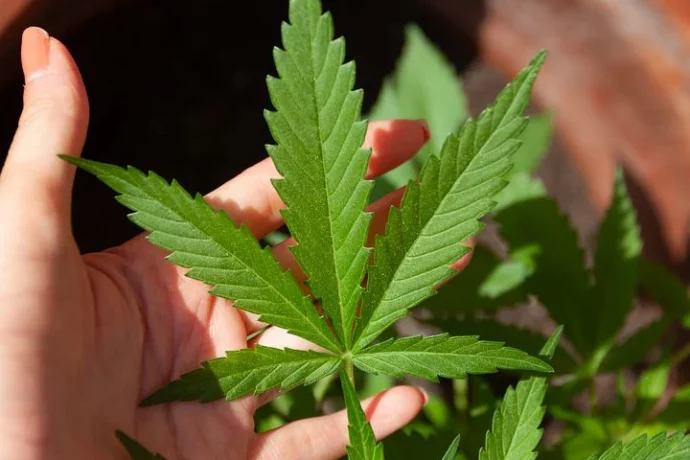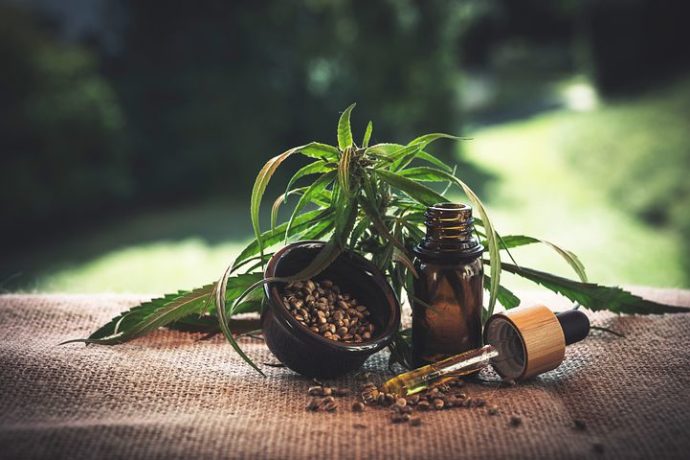Many people know cannabis for its numerous health benefits and have used it for years. If you are familiar with the plant, you might have heard about the term “cannabinoids.”
These are compounds found in cannabis plants that give them their potent effects. A plant contains over 80 cannabinoids, with each performing a different function.The most well-known cannabinoid is tetrahydrocannabinol (THC), and it is also the most abundant compound found in the cannabis plant.
It is quite popular because of its psychoactive abilities. Coming in at a close second is cannabidiol (CBD), and while this compound does not have psychoactive effects, it does have the potential to improve mental health.
So, what are the mental health uses of CBD? This article will discuss the mental health benefits of CBD, its potential side effects, and other possible risks. Read on to find out more.
Uses Of CBD For Mental Health Disorders
Many believe that CBD can treat or address several ailments, such as chronic pain, insomnia, loss of appetite, and more. However, there isn’t enough research to back this up, and scientists need more done to certify this information.
Despite the research being in its infancy and researchers still needing time to research the full health benefits and health risks of CBD, some studies show the healing effects of CBD on the human mind. Some of the conditions that CBD can possibly treat include generalized social anxiety disorder, bipolar disorder, sleep disorders, depression, epilepsy, post-traumatic stress disorder (PTSD), and so much more.
-
Anxiety Disorders
Anxiety is an issue that plagues numerous people around the world. About one-fifth of U.S. adults are affected by anxiety disorders every year. Fortunately, CBD might be able to help with this problem. According to some studies done by scientists, you can try CBD gummies for anxiety as it can potentially treat symptoms that come with anxiety disorders.
Furthermore, a 2015 research venture published in Neurotherapeutics showcased studies on how CBD can treat anxiety-related disorders.
The compound was shown to be effective against some anxiety symptoms, some of which include:
- Panic disorder
- Generalized anxiety disorder
- Social anxiety disorder
- Obsessive-compulsive disorder
- Post-traumatic stress disorder
That said, it is important to note that the people who released this journal detailing the effects of CBD on the mind also mentioned that the use of this substance needs to be studied.
Therefore, they cannot confirm the long-term effects of CBD on mental health without conducting more research and ensuring that their information is valid.
So, if you plan on using CBD to treat your anxiety, it is vital to remember that it might not work for you. Hence, you should consult your doctor before commencing any treatment to ensure you are on the right track.
-
Sleep Issues
Cannabis is known for its calming abilities. One of the reasons for this calming effect is CBD, which is why the substance might be able to help with sleeping concerns.
Sleep is essential to our emotional, physical, and mental well-being. However, the Center for Disease Control and Prevention notes that about 33% of adults in the U.S. do not sleep for the recommended number of hours nightly.
Unfortunately, this could adversely affect the human body and mind. Some health issues linked to lack of proper sleep include obesity, depression, heart disease, type 2 diabetes, and more.
Furthermore, lack of sleep is one of the leading causes of motor vehicle accidents, which lead to injuries or, worse, fatalities.
According to a study done on adults with anxiety and insomnia, CBD can help combat the issues. The study showed that 65% of the adults studied had seen improvements in their sleep patterns after taking about 25mg of CBD every day for a month.
However, these results fluctuated. So, no concrete evidence proves CBD can treat sleep difficulties in all adults. Therefore, we need more research before we can determine all the potential effects of CBD on humans and our sleep quality concerns.
-
Depression
Depression is arguably the most common mental health condition in the United States and around the world. According to the National Institute of Mental Health (NIMH), this condition affects over 21 million U.S. adults yearly.
Luckily, there are currently treatment methods that have proven to be effective, some of which include medication and psychotherapy. However, due to the number of cases, professionals have begun discovering new ways to treat depression. One of these ways is through the use of CBD.
CBD has shown promise in treating depression due to its possible antidepressant abilities. Low serotonin levels in the brain may lead to the signs of depression, and some antidepressants can combat that.
They affect the serotonin receptors in the human brain, which in turn helps to improve depression. According to a study done on animals, CBD might be able to help affect these serotonin receptors, which may have some antidepressant effects.
A study carried out in 2018 showed that the antidepressant effects of CBD depend on the level of serotonin in the individual’s brain.
According to this study, the substance does not increase the serotonin level in the brain. Instead, it affects how your brain reacts to serotonin already found in your body.
-
Epilepsy
CBD seems to effect positive change on many neurologic conditions, and one of these improvements involves reducing how frequently and severely seizures occur.
Unfortunately, some conditions, such as Lennox- Gastaut syndrome (LGS), do not respond well to certain anti-seizure medications. Therefore, an alternative needed to be found.
Fortunately, there have been instances where CBD treatments have seemed to reduce seizures efficiently. You can even find viral clips of these improvements on social media. The best part about this treatment method is that there is research to back its effectiveness.
A study was done on people with pediatric epilepsy using CBD. After using CBD for a while, about 40% of patients with Dravet syndrome saw a decreased frequency of their seizures. CBD reduced their seizures by more than 50%, which significantly improved their condition.
Furthermore, the Food and Drug Administration (FDA) has approved the use of drugs containing CBD for the treatment of seizure disorders in children.
-
Post-Traumatic Stress Disorder (PTSD)
PTSD is not as common as other conditions in this article, but it is still a prevalent condition that affects about 6% of adults in the United States.
Several symptoms of PTSD include nightmares, reliving traumatic experiences, disturbing thoughts, avoiding traumatic triggers, and others.
Some research suggests CBD could reduce the severity of these symptoms. A published journal notes that one dose of CBD coupled with standard PTSD treatment may reduce some of the symptoms mentioned above.
Is CBD Worth Trying?
CBD flower has a lot of potential and, if implemented properly, can significantly improve both mental and physical health. However, the research we have so far is not enough to determine the full effects of CBD on mental health conditions.
According to a 2019 study that reviewed all the current research regarding treating mental health issues with CBD, there is not enough information to support using the substance. The review spanned various studies from the 1980s to 2018 and covered six disorders.
The study showed that THC, regardless of whether it contained CBD, helped improve anxiety symptoms in people with underlying conditions like chronic pain. However, this scientific evidence is often disregarded as mediocre.
Nevertheless, these results do not prove that CBD is ineffective against mental health issues. In fact, most of the studies done were carried out on a few participants, and the duration of the studies was short-lived. Lastly, the trials were mostly not controlled.
All this study shows is that we need more time to provide more high-quality proof that CBD can effectively treat mental issues.
Several professionals strongly believe CBD is a potent tool against many mental conditions, and they are optimistic that research will soon validate their beliefs.
Many animal studies have been done using CBD, and these animals have responded positively to these tests. Scientists have seen improvement in anxiety and stress in these animals and believe there is no reason why humans should not experience the same effects.
Types Of CBD
You can find CBD in several forms and products. These forms include gummies, tinctures, beverages, topical creams, and more. CBD, THC, and other cannabinoids are obtained from cannabis plants. However, the species determines how much of these substances you can extract.
You can only find trace amounts of THC in CBD you extract from hemp plants, meaning it does not contain enough THC to cause any psychoactive effects.
This is why most manufacturers create their products using CBD from hemp plants. At the end of the day, they want to make products that offer their consumers all the health benefits of hemp without the euphoric feeling that comes with it.
On the other hand, CBD from marijuana plants (mostly banned plants) contains high amounts of THC, which surpasses the legally allowed amount (0.3%). Therefore, it can cause that euphoric feeling you typically get from smoking marijuana.
That said, there are three types of CBD on the market: CBD isolate, broad-spectrum, and full-spectrum.
-
CBD Isolate
CBD isolate is the purest form of CBD as it does not contain any THC whatsoever. This is why you can only find it as a powder or a crystalline solid.
The manufacturing process of CBD isolate is pretty complex. Manufacturers utilize numerous processes to remove all the compounds found in the cannabis plant. After going through the process, all that will be left is pure CBD, which is in a crystalline form.
Some manufacturers might take a step further by grinding the solid into powder. This makes it easier for the customers to consume. Furthermore, CBD isolate does not seem to taste or smell like anything distinctive, so you should have no issues taking it.
After taking CBD isolate, you might experience a few changes in some bodily functions, such as memory, appetite, mood, and more.
-
Full-Spectrum CBD
Full-spectrum CBD oil contains everything you would find in a cannabis plant. It also contains less than 0.3% THC. This type of CBD is perfect for people who want to experience all that the cannabis plant has to offer without actually getting high.
One major benefit of taking full-spectrum CBD is the entourage effect you would get. The entourage effect combines all the cannabinoids found in cannabis working together to improve your overall experience.
Another reason people opt for full-spectrum CBD is its popularity; you can easily find products in many stores.
However, you should stay away from full-spectrum CBD if you do not want THC in your system or if you have an upcoming drug test (the test might read positive for THC). Lastly, be careful when using this type of CBD because it might not be legal in your state.
-
Broad-Spectrum CBD
Broad-spectrum CBD contains all naturally occurring compounds found in cannabis, except THC. However, some broad-spectrum CBD do contain trace amounts of THC.
Just like full-spectrum CBD, you can use broad-spectrum to enjoy the entourage effect without the psychoactive effects of THC.
Methods Of Taking CBD
As mentioned earlier, there are several ways for you to ingest CBD. Keep in mind that CBD containing less than 0.3% THC is legal according to federal law, but this does not mean it is legal in your state.
Hence, you need to research all the laws in your state and ensure you are not breaking the law by purchasing CBD products.
Furthermore, CBD products are not FDA-approved medications, so you must be careful when purchasing a CBD product because these products will vary based on potency and effectiveness. Some might even cause adverse health conditions. With that said, here is some detailed information about how to take CBD.
-
Oral CBD
This is one of the most common ways of taking CBD. You can take CBD orally in several forms, which include:
- CBD oils (mixing CBD with a carrier oil)
- CBD oil tinctures (mixing CBD with water or alcohol
- CBD Capsules
- Sprays
Taking CBD orally is efficient. It may take a while to start working, but once it does, you will feel its effects for hours.
-
Topical CBD
This form of CBD requires you to apply lotions, salves, creams, ointments, or serums onto your skin and allow your skin to absorb the CBD product. Topical products have effects on your skin, but you will not feel any mental health benefits from using this form of CBD. To enjoy the claimed benefits of CBD, you need to take the substance orally.
-
Edibles CBD
Edibles are optimal for people who do not like the earthy taste of cannabis. You can find CBD products such as gummies, candies, beverages, and more. Most of these products come with CBD oils.
-
Inhaling CBD Oils
Some brands create CBD oils specifically for vaping. However, vaping is similar to smoking, and while it may be safer, the practice still has numerous health concerns that require further research.
Potential Side Effects Of CBD
Granted, the possibilities of CBD improving human health are endless. However, this powerful substance is not without side effects. Therefore, it is important for you to understand the potential risks that come with CBD.
A study suggests that most people can tolerate up to 600mg of CBD. However, just because you can tolerate the substance does not mean you won’t feel any side effects.
The side effects of CBD vary from person to person based on factors like body weight; some might not even feel any side effects. Regardless, you need to consider all the side effects of the compound. Here are some symptoms people have reported after using CBD
- Mood changes
- Dry mouth
- Dizziness
- Anxiety
- Drowsiness
- Appetite changes
From the list of symptoms, you can see that none of these side effects are fatal. However, if you do experience any of them for a long period, you should stop taking CBD and contact your doctor.
Furthermore, compiling a list of all the potential side effects of CBD is challenging because of the lack of regulation regarding the substance. Therefore, manufacturers can make their CBD products any way they deem fit, leading to many inconsistencies regarding purity, potency, and manufacturing.
So, it is difficult to determine if all these cannabis-derived products have the same side effects because they have different formulas and dosages.
However, you can research and find the best brands to use. Other things you should look out for include brand reputation, certificate of analysis (COA), and customer reviews.
The Drawback Of CBD
Before taking any CBD products, be sure to consult your doctor. This is truer than ever if you are currently on any medication or have an underlying health condition. Your doctor will be able to help you decide if you can take CBD or if it is even right for you.
It is important to speak with your doctor because CBD may elevate your current health condition. For example, you might find that CBD makes anxiety symptoms worse.
Alternatively, it could interact with certain medications you are taking, making them ineffective. Or, the combination of CBD and the medication might cause adverse effects on your immune system or other parts of your body.
Factors To Consider Before Deciding To Take CBD
Besides talking to your doctor, there are other factors you need to consider before taking that first dose of CBD.
-
Misinformation
Mislabeling is a serious issue in the CBD industry. Due to the lack of regulations, manufacturers can produce CBD products and attach labels with misleading information. For example, a company might produce a CBD product with a noticeable amount of THC but fail to disclose this information.
This can become a problem, especially if you plan on taking the product for anxiety issues. The THC in the product might trigger an unwanted psychoactive experience, which may worsen anxiety. Furthermore, this mislabeling can cause an individual to fail a drug test, which could cost them things like their job.
-
Drug Test
If you plan on taking a drug test in the near future, it is best to stay away from CBD products. This is because most CBD products contain THC, even if it’s in small amounts. Even products that claim not to have THC might contain a small amount.
So, it is best to steer clear of them before going for your test. That said, you can stick to CBD isolate, which should contain no trace of THC at all.
-
Other Risks
Studies are still being done regarding the dangers and benefits of taking CBD and the substance’s mental and physical side effects. Unfortunately, these studies, while valid, are not sufficient enough to fully verify the authenticity of these claims.
Therefore, it is too soon to determine the extent of how well CBD works on mental health issues. Regardless, experts are optimistic that future research studies will prove that CBD is a powerful tool against mental conditions. Hence, you should always be careful and talk to your doctor before using it.
Conclusion: Does CBD Alleviate Mental Health Disorders?
CBD has numerous benefits, some of which have yet to be discovered. However, many people have reported that CBD’s use on mental health conditions has proven beneficial.
Ultimately, using CBD to try and treat conditions like multiple sclerosis, anxiety, sleep quality issues, PTSD, and other psychiatric disorders is fine. However, do not expect to see results as these claims are not fully tested.
Furthermore, be careful where you buy your CBD because the FDA does not regulate it. So, there is no guideline regarding the production of these products, meaning some fall into the placebo group.
Also, remember that you should always consult your doctor when using CBD. Inform them before starting the product, and give them regular updates should you see any changes in your body or condition.







